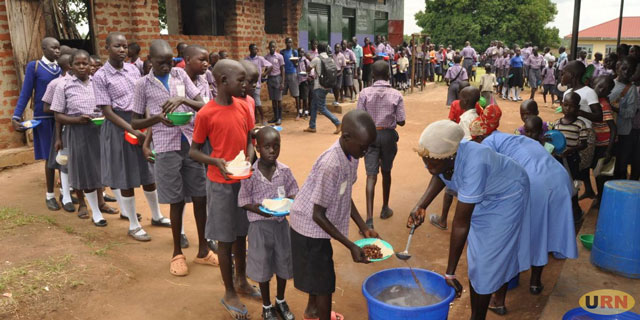
Gulu, Uganda | THE INDEPENDENT | The Uganda National Bureau of Standards (UNBS) has tasked schools and heads of institutions in the Acholi Subregion to monitor the procurement of quality grains for feeding their learners in a bid to promote their safety.
The call comes amidst concerns about the quality of food especially posho, rice, and beans which are majorly consumed by learners in school but supplied by uncertified suppliers from the region.
Patricia Bageine Ejalu, the Deputy Executive Director in charge of Standards at UNBS says food quality remains a key issue that needs to be addressed in the education sector if learners are to be safe since most food suppliers are not certified.
Ejalu notes that school and institution heads in the region must ensure they only purchase food from suppliers that have been certified by UNBS and are following the right standards in food production to scale down the risk of harming learners.
Ejalu was speaking on Wednesday on the sidelines of a sensitization meeting for school and institution heads in Gulu City.
The meeting organized by UNBS in partnership with USAID Feed the Future aimed at sensitizing stakeholders in the education sector in the region about the mandatory standards for food products to guarantee the health and safety of learners.
She however notes that there is a need by the school authorities to ensure proper storage of grains that have been procured to avoid the chances of the grains developing moisture resulting in aflatoxin. Ejalu says food stores in schools need to be spacious and well-aerated.
Ejalu however called on various stakeholders in the region especially the local government to join hands with UNBS in the promotion of quality production of food consumed both in households and in the open market.
The majority of the school heads however note that compliance to food safety in the region remains a big challenge due to the limited numbers of certified suppliers and the high cost of produce charged by certified suppliers.
Anthony Ojok, the Chairperson of the School Management Committee (SMC) in Pader District says most schools in the region prefer procuring grains cheaply from the local market instead of certified dealers who charge highly.
He says such options have left the learners to bear the burden in case of complications adding that there is a need by school authorities to refocus their choices for the safety of learners.
Ojok also notes that there are limited spot checks for the quality of food products that are taken to schools by parents under the school feeding products arguing that some don’t conform to the quality and end up injuring learners.
“Parents bring food to our schools but unfortunately, they are not properly checked on whether they are of the right quality. These are the foods our cooks end up cooking and unfortunately, at the end of the day, they affect our children,” said Ojok.
Pido Joe Cankara, the Director of Studies at Koch Goma Secondary School in Nwoya District on the other hand, says poor storage facilities in most schools are a great challenge to food quality.
For instance, Cankara says Koch Goma Secondary School doesn’t have appropriate storage space for keeping grains and challenged the school management to upgrade it for the safety of food stored for learners.
Acholi Sub-region remains a key region that produces a significant quantity of grains in the country yearly but according to UNBS, very few producers have been certified.
Currently, according to UNBS officials, there are more than 400 maize millers in the country who have been certified to produce posho, an increment from only five in 2020.
UNBS is expected to hold another sensitization meeting with grain dealers, millers, and manufacturers of various products in the region on Thursday.
****
URN
 The Independent Uganda: You get the Truth we Pay the Price
The Independent Uganda: You get the Truth we Pay the Price


